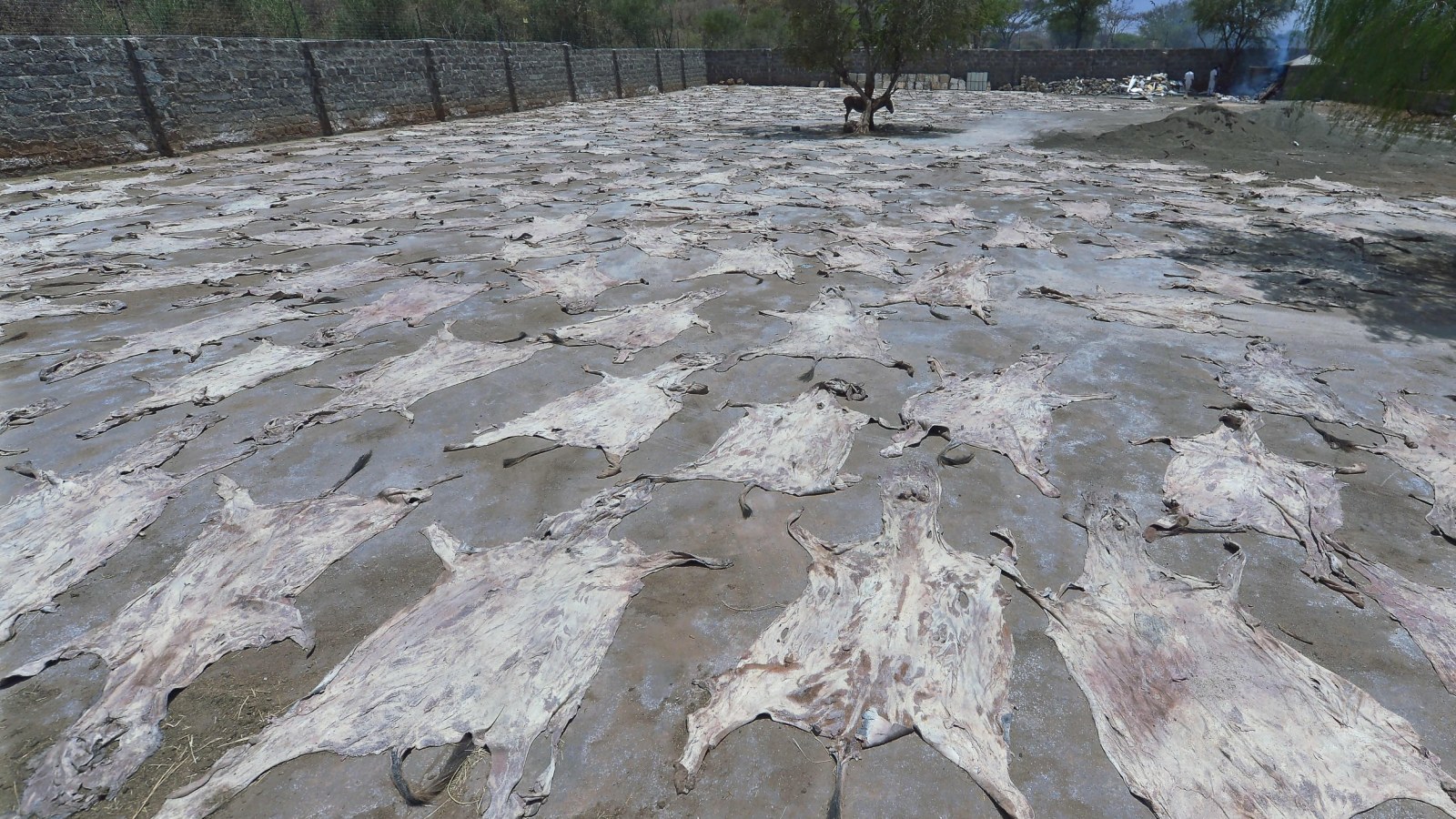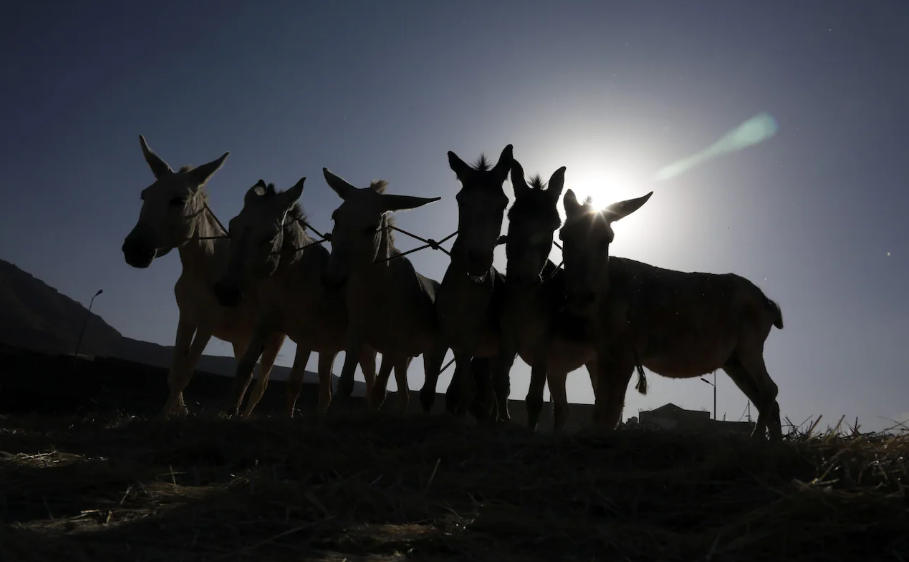Donkeys are one of the simplest, most sustainable and affordable means of transporting people, goods and farm inputs and outputs from home to farm to market and vice versa, as well as to water wells and other places. Even in harsh environments donkeys can travel long distances with a heavy load, limited fluids, and without showing signs of fatigue. They are a durable household asset.
Rea More: Tanzanian Government Cracks Down On Maasai Herders In a Bid to Boost Tourism
In recent years, there’s been a huge, rising demand for donkey hides in China, where they are used to make an ancient health-related product called ejiao. Ejiao is made from collagen that’s been extracted from donkey hides mixed with herbs and other ingredients to create medicinal and health consumer products. It’s believed to have properties that strengthen the blood, stop bleeding and improve the quality of both vital fluids and sleep.

The ejiao market in China has increased in size from about US$3.2 billion in 2013 to about US$7.8 billion in 2020. This recent rise in demand is driven by several factors, including rising incomes, popularisation of the product via a television series, and an ageing population (age is a key demographic driving demand). In addition, ejiao is sometimes prescribed by doctors and the cost can newly be covered by health insurance.
The demand for ejiao has led to a shortage of donkeys in China and increasingly worldwide. Countries in Africa have been particularly affected, still the continent is home to the highest number of donkeys in the world: about two-thirds of the estimated global population of 53 million donkeys in 2020. Exact figures on how many hides are exported to China aren’t available due to a growing illicit trade, but there are indications. A study of South Africa’s donkey population, for instance, suggests that it went from 210,000 in 1996 to about 146,000 in 2019. This was attributed to the export of donkey hides.
The More: Zimbabwean Embassy Responds to Expiry of Exemption Permits
The scale of the donkey trade, both illicit and legal, poses a challenge for many countries in Africa, especially in terms of its impact on the most marginalised communities. Besides donkey welfare, a big part of the challenge is how affordable donkeys are locally. Donkeys have a valuable, ancient role as a workhorse and losing access to them creates a huge problem for poor households. The other part of the challenge is regulatory. Only when the donkey hide trade is fully regulated – and export numbers are able to be very limited – might the trade work without adverse consequences for the poor.
This was also highlighted by a recent survey of the East African Community which found that the region was not ready for the mass slaughter and unregulated trade of donkeys. Millions of vulnerable East Africans rely on donkeys for a living and are at risk of losing out through the donkey skin trade.
Donkeys are estimated to support about 158 million people in Africa. In rural areas, the presence of a donkey in a household helps to alleviate poverty and frees women and girls from household drudgery.
Read More: Military Junta Expels UN Mission’s Human Rights Chief
Rising Chinese demand for donkeys has elicited a variety of responses by governments across Africa. Tanzania attempted to create a formal donkey industry and trade. But, in 2022, authorities banned it because legal supply couldn’t keep up with demand. Female donkeys typically produce only a few foals each in a lifetime.
In Kenya, public outrage – largely due to the rise of donkey prices and diminishing supply – led to a ban on exports in February 2020. Kenya’s donkey exporters, however, took their case against the ban to Kenya’s High Court in June 2020, and won.
A China-Africa donkey hide trade may be possible if African countries get organised, form associations and establish a dialogue with the Shandong Ejiao Industry. The aim would be to work out sustainable mechanisms, prevent damage to local interests and help to counter the illicit trade.









